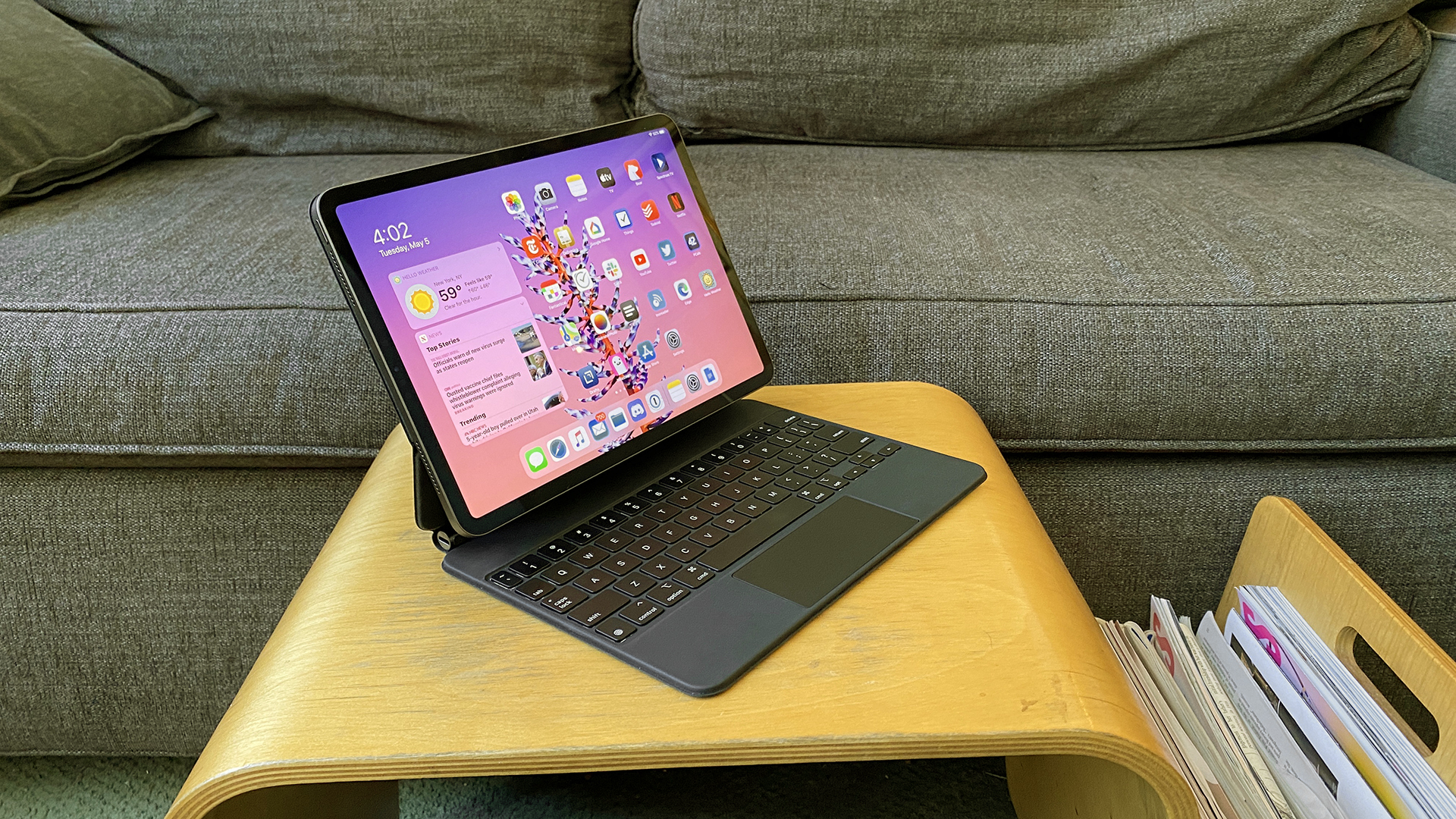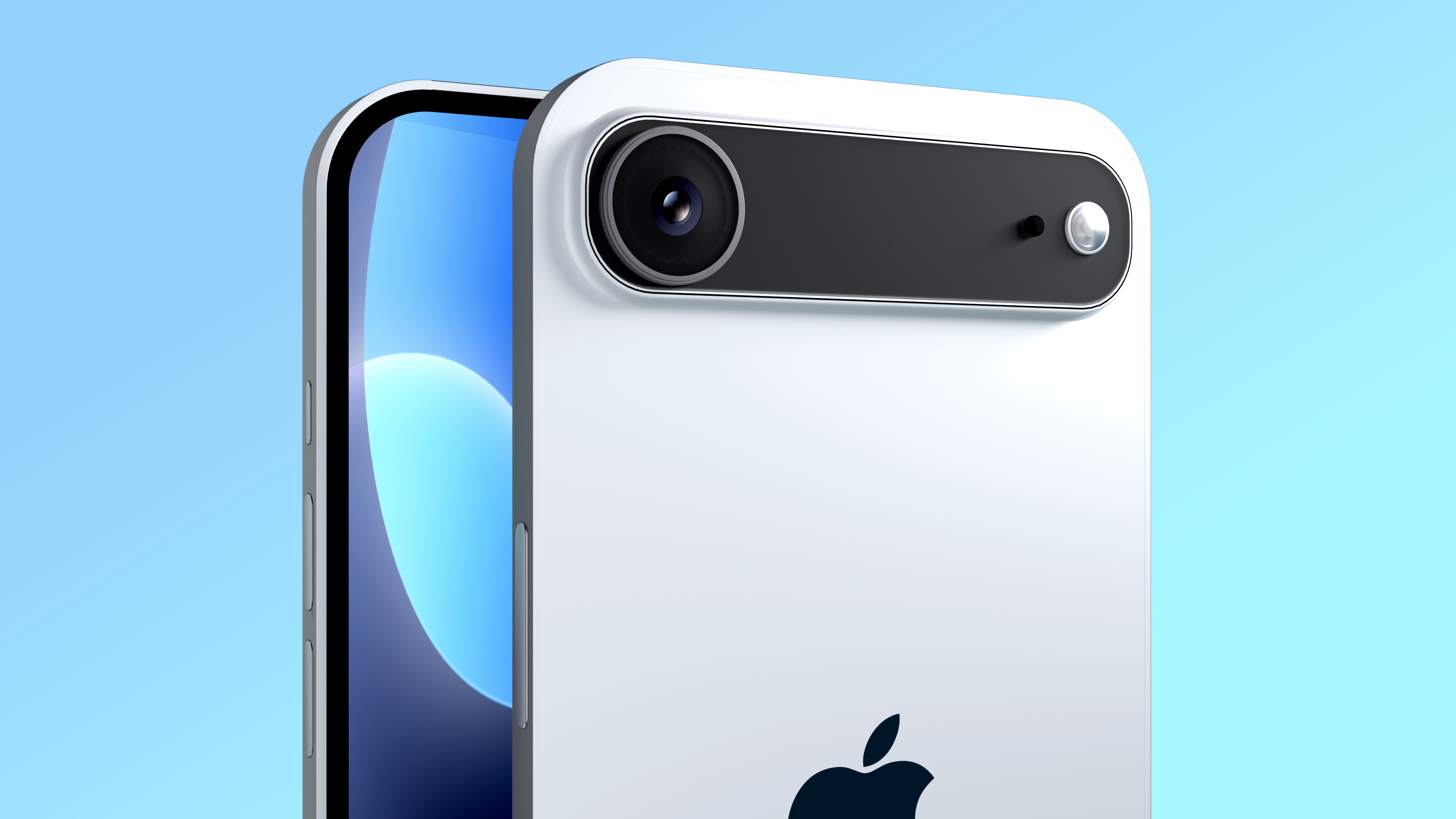iPad Pro 2021 leak teases M1 power — but it sounds like overkill
An M1-like chip in the iPad Pro will give it more muscle than a tablet really needs

The iPad Pro 2021 could make great use of a revamped A14 chip that taps into the power of the Apple M1 chip, but it could push the 'Pro' tablet to become even more of a niche device.
A video published recently by Mark Gurman discussed the new brains inside this year's rumored iPad Pro, describing it as "on par" with the M1 chip inside Apple's latest MacBooks.
- New iPad Pro 2021: Release date, price, rumors and everything we know
- Find your new iPad or something different in our best tablets guide
- Plus: iPhone 12 MagSafe battery leaked — and it could charge your AirPods
While the iPad Pro does have a professional whiff to it, there are people who buy it just to have the nicest iPad they can afford rather than a true laptop replacement.
A significant performance increase should secure the iPad Pro 2021 a place on our best tablets list. All this is good right?
Well if it's true, then I believe it'll firmly establish the iPad Pro as a device for power users, and not tablet buyers who simply want the best iPad they can afford. And a 'pro-only' tablet doesn't really appeal to me.
Too much power?
In case you're not up to speed on laptops, at the end of 2020 Apple swapped from Intel-made chips to its own Apple Silicon design for the MacBook Air, MacBook Pro (13-inch) and Mac mini. These chips offer surprising amounts of performance, often beating Intel CPUs, and they deliver class-leading battery life. Plus, the M1 chip has given Apple the opportunity to tie its Mac and iOS devices even more closely together with cross-compatible apps.
Alongside the widely rumored mini-LED display, we'd expected the next iPad Pro to introduce a new version of the A14 chip from the iPhone 12. However, Gurman's claim suggests that Apple may instead use a chip based on the M1, if it's offering comparable performance.
More power is good, but let's put this in context with how tablets tend to be used.
I use my 7th-gen iPad almost exclusively as a device for web browsing and streaming. As much as I envy Face ID, the LiDAR sensor and the larger display on the iPad Pro, I accept that I would have wasted my money on features I would barely find a use for had I picked up a Pro.
Apple pitches the iPad Pro as a device for more work than play. Last year the company took a step closer to making the iPad a pseudo-laptop by offering a new Magic Keyboard accessory. The keyboard acts both as a floating stand for the iPad and a way to give it a full keyboard and trackpad combo.
At the time, we noted that the Magic Keyboard lacked support in third-party apps, and its weight reduces the overall portability of the tablet. Plus, its $300 starting price means it's not something you should really buy on a whim. But it makes the tablet more suitable for in-depth and precise tasks that on-screen controls just can't match.
Adding the Magic Keyboard means the total iPad Pro package costs not much less than an M1 MacBook Air. For work purposes, it's hard for a tablet to properly compete with a laptop. It's much harder to balance an iPad on your knees, angle the display correctly, and have the keyboard in a suitable spot than it is to work off of a laptop. So there's the argument that you're better off with a MacBook Air and then a cheaper iPad.
And it's important to note that the M1 MacBook Air, Pro and Mac mini all have more space for thermal management than an iPad Pro; the latter two have dedicated fans. So using an M1 chip delivering MacBook Air-like power could create a rather toasty tablet unless Apple does something very clever with passive cooling or down clocks an M1 variant, which then might render the use of such a chip a little moot.
Furthermore, more powerful chips designed for laptop use might be too much for a tablet-grade battery to cope with. Sure, the M1 chip is impressively efficient, but it has a laptop battery and thermal system to use; Apple could need some clever engineering to make the M1 effective in a slim tablet chassis.
Power versus practical
Software is important to consider too. There are iPad versions of Apple's flagship creative software like Garageband, as well as of popular third-party apps like Photoshop. But the variety of apps on macOS still vastly outweighs those found on the iOS App Store.
You can put as much power as you like into an iPad, but without the software to take advantage of that grunt, it's going to be wasted even in the hands of the kind of super-user who'd really benefit from a more muscular iPad.
If Apple builds out iPadOS to have better mouse/cursor support and software that's more dekstop-like in use when it needs to be, then there's a more compelling argument for supercharged iPad Pro. But if not you've got a powerhouse machine that can't stretch its legs; think of it like having a supercar just for visiting the local shops.
Comparing the iPad Pro to Apple's MacBooks may reveal what exactly it plans to do with the tablet. Although there's nothing explicitly saying the MacBook Air is for general users and the MacBook Pro is for professionals, the specs and pricing suggest otherwise. This seems similar to what Apple's just done with the iPad Air.
The fourth-gen iPad Air is a big overhaul from the previous one. It offers an A14 chip, gen-2 Apple Pencil and Magic Keyboard compatibility, plus it even offers the same thin bezel design as the iPad Pro. It lacks Face ID and a LIDAR sensor but, as a result, costs about $300 less.
Based on the rumors, it feels like Apple's about to realign the upper half of its iPad family to mirror the MacBook range. It may mean some of us have to accept Apple's best tablet isn't right for us, but it'll be great news to those who want the ultimate in performance and portability. Let's just hope Apple and iOS developers give them some suitable apps to really make the most of that power with.
Sign up to get the BEST of Tom's Guide direct to your inbox.
Get instant access to breaking news, the hottest reviews, great deals and helpful tips.

Richard is based in London, covering news, reviews and how-tos for phones, tablets, gaming, and whatever else people need advice on. Following on from his MA in Magazine Journalism at the University of Sheffield, he's also written for WIRED U.K., The Register and Creative Bloq. When not at work, he's likely thinking about how to brew the perfect cup of specialty coffee.
-
Petevb I must say I’m very much looking forwards to the rumored horsepower bump, and it‘s one of the main reasons I’d hope to upgrade.Reply
I’m writing this from my second 12.9” iPad Pro as we speak. The first one I bought back when they initially came out very much as you describe: a ”better” iPad with a bigger screen, otherwise little different than any other iPad and certainly not as capable (at anything) as a laptop even with the keyboard. Over the last couple years, however, that appraisal has changed, particularly with the release of Adobe Lightroom and Photoshop for iOS. I found the iPad pro with pencil was suddenly a very powerful tool for the (amateur, in my case) photographer, better in many ways than a desktop or laptop for many tasks.
The iPad fits neatly into my camera bags with minimal extra weight. Photo editing is faster and easier than a laptop with a pencil. It can be done in the field and then photos wirelessly uploaded to the cloud. The software actually runs faster than the desktop versions in most ways with just a couple caveats: some of the more complex operations like photo stack and merge are unavailable, meaning I need to go back to my desk for certain things.
In short I found that the iPad wasn’t just smaller, lighter and more convenient to use for casual tasks than my laptop or desktop, it’s also become a tool that’s simply better at some tasks than either. Giving it more power so that developers like Adobe can add those last features would make it even more so. So I say if they can keep it cool and light bring it on- I feel certain developers will find ways to exploit that extra power, and many of us will eventually find that we appreciate what that unlocks even if we’re not pros. -
Paulos1 I totally agree with you. I am waiting for the Apple announcement to see if the new iPad Pro will be much faster compared with the current one which in many aspects is slower than iPad Air! I recently broke my MBP and I'd rather buy iPad Pro and wait for the new MBP M1 later this year, than buy any current device which isn't fast enough for me. I do photo editing and I will only buy new iPad Pro if it's significantly faster to handle processing of large files. I wish the new iPad Pro received the M1 chip.Reply
The author of this article complains that iPad Pro may be even more pro! Not sure if he understands the purpose of the pro model, and why it is called pro (for sure not because it has a better camera).
